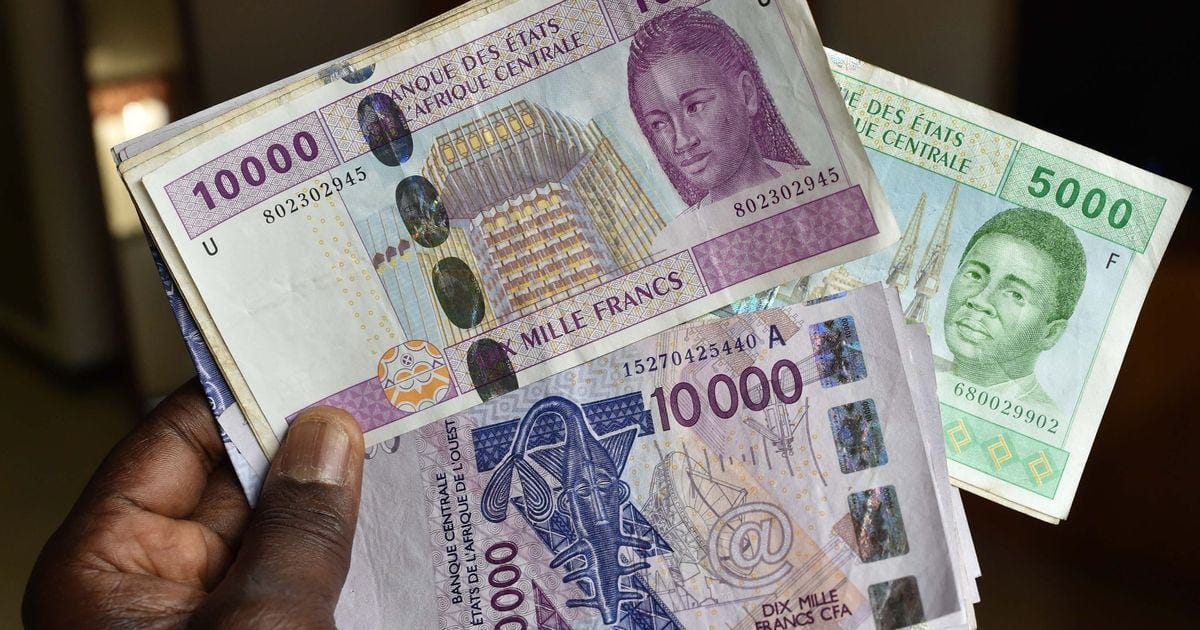
Earlier this week, I discussed the ideas at the core of my new book The Heart of a Cheetah with the French newsweekly L’Express.
The original (in French) is available here, but I also wanted my English-speaking community to be able to read it, so you’ll find a translation below.
Renowned speaker and business leader Magatte Wade was included in the Forbes ranking of Africa's most inspiring personalities in 2014. Defender of virtuous capitalism, skeptic of development aid for African countries, this extraordinary personality, whom France has failed to keep, pleads for liberalizing economies in Africa.
L'Express: You are originally from Senegal, you studied in France and you have French nationality. So why did you choose to live in the United States?
Magatte Wade: I would never have been satisfied with what was possible for me in France. Things have changed, but at the time, I had no reason to believe that, as a Senegalese immigrant in France, without pulling strings, I could have run a business. Your background, the address on your CV, and the photo on it define your future.
My life changed after an exchange in the United States. Even in the Midwest, the vibes were very different from those in Paris! I was told about a racist country, “deep America.” My host family paid my visa fees to hire me. When I moved out, the landlord gave me a deal on my rent: “You’ve just arrived, that’s normal.” In less than a year, I was in Silicon Valley. I had been a cashier at the Carrefour de Chartres, and here I was a headhunter for large companies, including Google. They gave me my chance despite my thick French accent because they saw my determination. Young people creating the future day and night, that's what I wanted from life, and American culture suited me better.
L’Express: Do you think that France is a territory conducive to innovation and entrepreneurship?
MW: France produces some of the best technical talents, mathematicians, and engineers in the world but is not “entrepreneur friendly.” When a French engineer leaves school, a young American of the same age sets up his second company. The same person with the same job has two completely different futures. It's a shame, because there are entrepreneurial French youth, but we can't lock talent away: entrepreneurs go where they are allowed to create.
The French want to have a pension and purchasing power, and that is normal. But it is the company and, therefore, the entrepreneur who create this. The French have a closed vision of the economy, for fear of losing what they have acquired. They try to re-cut the same cake without imagining that we can make it bigger or that we can make others. It is often said that Americans are big children, but children see possibilities where adults see obstacles.
L’Express: Today, what motivates you to do something for Africa?
MW: Respect for Africans will come with prosperity. “The fate of all black people, wherever they live, is linked to the fate of Africa,” says Ghana's President, Nana Akufo-Addo. This is how stereotypes stick to black skin. We still cannot dissociate a black person from the way we see Africa. Everything I do is to contribute to a prosperity that will reposition Africans and all black people on the world stage. It is in this order that we must act to fight against racism. The activism of Rokhaya Diallo does not resolve the fundamental problem. As long as Africa is not prosperous, racism will exist. I don't have time to waste telling people to stop being racist. For me, it comes down to managing the symptoms of an illness, not its causes.
L’Express: What is it like to do business in Senegal?
MW: Africa is the continent with the most over-regulated economy in the world. But over-regulation leads to corruption. If Africa is poor, it is because of a lack of economic freedom. It is no coincidence that 90% of Senegalese businesses are in the informal sector. Being a legal entrepreneur is an uphill struggle because of the bureaucracy: as soon as my company reaches a certain size, we are entitled to inspectors. When I was forced to triple the salary of a candidate, I had to give up employing her.
Everything must change, and we might as well start small, in start-up cities. In Benin, for example, there is [the new special economic zone of] Glo, but, after two or three years of existence, it is barely filled, partly because of the legal regime and governance. This is normal: it requires great expertise. But an entrepreneur, the first thing they see is the creativity made possible by the jurisdiction, not the tax incentive.
There is also a monetary brake. One of France's colonial legacies is also the monetary and legal system. The French-speaking African world is still France's territory with the CFA franc, pegged to the euro and, therefore, less flexible.




In addition to the thesis of Magatte Wade, Africa will become prosperous when the continent experiences its own industrial revolution. The prosperity of Europe is a product of the industrial revolution. The United States of America was a former British colony and today it has become a superpower. The " Asian Tigers" notably Japan, Singapore, South Korea, China also had their own industrial revolution. The prosperity of Africa can only come from within the continent.